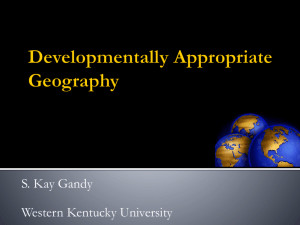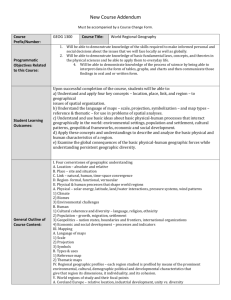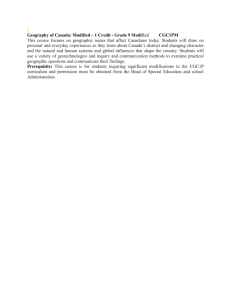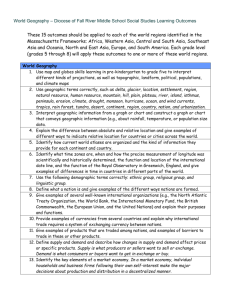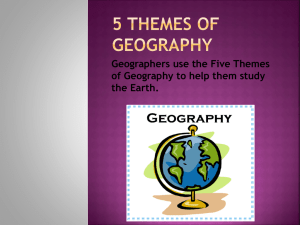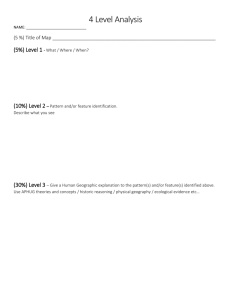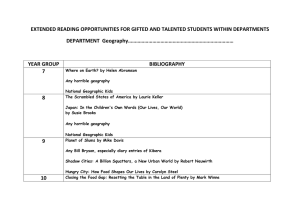Maui Community College COURSE OUTLINE 1. Alpha and Number
advertisement
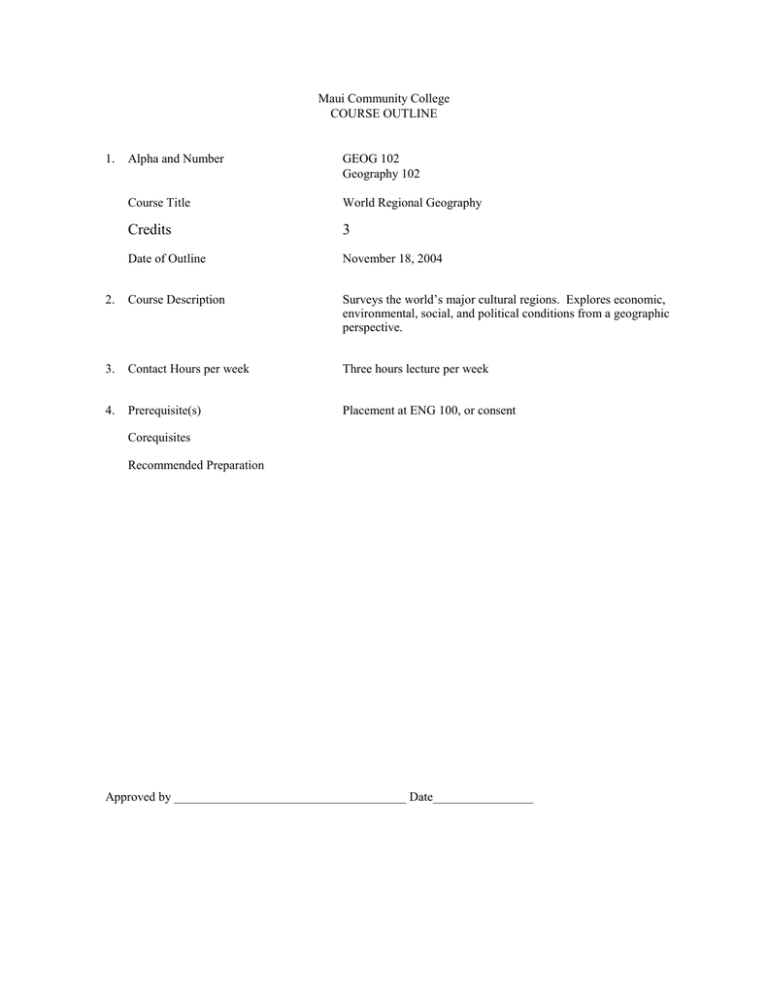
Maui Community College COURSE OUTLINE 1. Alpha and Number GEOG 102 Geography 102 Course Title World Regional Geography Credits 3 Date of Outline November 18, 2004 2. Course Description Surveys the world’s major cultural regions. Explores economic, environmental, social, and political conditions from a geographic perspective. 3. Contact Hours per week Three hours lecture per week 4. Prerequisite(s) Placement at ENG 100, or consent Corequisites Recommended Preparation Approved by _____________________________________ Date________________ 5. General Course Objectives Geography 102 is designed to explore the fundamentals of World Regional Geography through the study of the world’s major cultural regions. Each region will be examined in terms of its underlying physical, cultural, economic and political backgrounds. Emphasis will be on geographic aspects of contemporary economic, social and political conditions of world regions. Geography 102 fulfills three of the 12 credits for the Social Science requirement for the A.A. degree and the Social Science elective for the A.A.S. degree at Maui Community College. This course fulfills the requirements for the University of Hawai’i at Manoa General Education, Diversification, Social Science (DS). 6. Student Learning Outcomes For assessment purposes, these are linked to #7, Recommended Course Content. On successful completion of this course, students will be able to a. discuss the basic geographic concepts and theories used to explain global patterns of distribution of population, culture, landforms, climates and economic activities; b. discuss the interdisciplinary approach of geography to explain natural and human processes responsible for spatial differentiation on the earth; c. locate and differentiate between specific regions of the world and yet understand the interconnectedness of world regions; d. identify and interpret contemporary world events and issues from a geographic perspective; e. define basic geographic terms; f. discuss geographic concepts, theories, and methodology; g. identify locations; and, h. integrate geographic knowledge and research skills (information research, critical thinking, reading/writing, quantitative reasoning , scientific methodology) into the development of a research paper. 7. Recommended Course Content and Approximate Time Spent on Each topic Linked to # 6. Student Learning Outcomes. The course content can be expressed as two integrated dimensions: regional content and thematic content. The thematic content will be covered in the context of the world’s regions. 1 session Ice breaker/get acquainted activity. Introduction to the course syllabus including a discussion of course materials, assignments, projects, and Service Learning option 1–2 weeks Introduction to geographic vocabulary, concepts and themes (e,f) 1-2 weeks North America (a, b, c, d, e, f, g, h) 8. 1-2 weeks Latin America (a, b, c, d, e, f, g, h) 1-2 weeks The Caribbean (a, b, c, d, e, f, g, h) 1-2 weeks Sub-Saharan Africa (a, b, c, d, e, f, g, h) 1-2 weeks Southwest Asia and North Africa (a, b, c, d, e, f, g, h) 1-2 weeks Europe (a, b, c, d, e, f, g, h) 1-2 weeks The Russian Federation (a, b, c, d, e, f, g, h) 1-2 weeks Central Asia (a, b, c, d, e, f, g, h) 1-2 weeks East Asia (a, b, c, d, e, f, g, h) 1-2 weeks South Asia (a, b, c, d, e, f, g, h) 1-2 weeks Southeast Asia (a, b, c, d, e, f, g, h) 1-2 weeks Australia and Oceania (a, b, c, d, e, f, g, h) Text and Materials Appropriate texts and materials will be chosen at the time the course is offered from those currently available in the field. Examples include: H. J. de Blij, Peter O. Muller, Eugene Palka (2004) Concepts and Regions in Geography, 2nd Edition, Wiley and Sons. Bradshaw, M.J. (2001) World Regional Geography: The New Global Order, McGrawHill. Clawson, D.L., Editor (2000) World Regional Geography: A Development Approach, Prentice-Hall. Lydia Mihelic Pulsipher, Alex Pulsipher (2002) World Regional Geography : Global Patterns, Local Lives, W H Freeman & Co. Rowntree, L., Editor (2005) Diversity amid Globalization: World Regions, Environment, and Development, Prentice-Hall. 9. Recommended Course Requirements and Evaluation Specific course requirements are at the discretion of the instructor at the time the course is being offered. Suggested requirements might include, but are not limited to 30-60% Regional quizzes, midterm(s) and/or a final exam covering lectures, discussions, media presentations, guest speakers, and reading assignments. 10-30% Individual and/or group oral reports . 10-30% Written reports/term paper(s)/poster presentations, and/or Service Learning 0-20% Participation in class and group discussions 0-20% Map exercises and/or map quizzes 0-20% Punctuality and attendance 10. Methods of Instruction: Methods of instruction should be selected to facilitate learning within the context of instructor and student abilities. Instructional methods include, but are not limited to: a. lectures; b. class discussions; c. group activities, assignments, projects, and discussions; d. library research activities; e. quizzes and other tests with feedback and discussion; f. videos and DVDs; g. web-based assignments and activities; h. Service Learning
